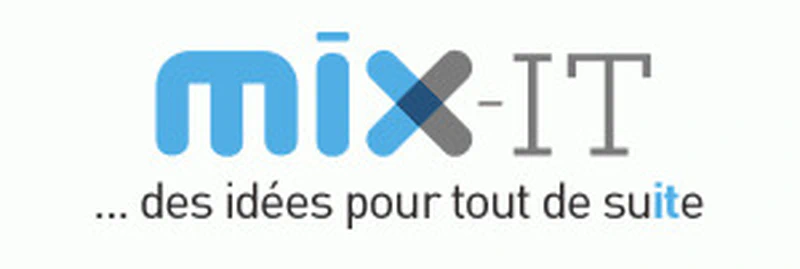Sudweb 2012

Long live spring as Bruno would say, with whom I’ll have the pleasure of facilitating a high-risk workshop at the upcoming Sudweb 2012 (May 26 in Toulouse). This workshop is high-risk because it’s a game, and a game needs to be tested. And it’s an ambitious game: 1h30 around a Machiavellian scenario in the style of a choose your own adventure book.
To learn more, read Bruno’s article or the workshop description :
We’re counting on you to come participate and give us your feedback. This workshop will take place as part of the “élaboratoire” day: let’s acknowledge that most people are saturated with PowerPoint and that we need participatory learning!
- For this occasion, here’s the short text written for Sudweb (I’m placing
- it below)
- `http://sudweb.fr/2012/cette-drole-de-journee-quest-lelaboratoire-vue-par-pablo-pernot/%60_
To Ideas, Citizens
When Sébastien or Frank from the Sud Web staff discuss Saturday’s participatory day with me, I can only rejoice. A day of workshops, participation, co-creation, a promise of energy, pleasure, and perhaps raw innovation. In the movement of barcamps, code/coach-retreats or open spaces, participatory formats are booming because, no secret, they offer a very good environment for learning:
Tell me, and I will forget. Show me, and I may remember. Involve me, and I will understand.
– Confucius, 450 B.C
So we must comply with one condition: make people participate.
Let’s try to clearly distinguish 3 states:
- Passive listening: a speaker with slides.
- Participation: the speaker engages the audience, and consequently the content of their speech is no longer predetermined.
- Finally co-creation: there’s no longer a difference between the speaker and the audience. We move from a very predictable state to a very unpredictable state. (This is actually some people’s fear: how can we avoid the risk of ultimately producing nothing. This rarely happens and if it must happen, take your two feet and change sessions).
For this participatory day that Sud Web has decided to beautifully name the “élaboratoire,” we forget state 1, passive listening to slides. That doesn’t interest us in this context (I didn’t say: no slides, I’m suggesting: not predominantly “passive listening”). What interests Sud Web is that you come with ideas for formats meeting objectives of participation or co-creation (coding-dojos are ultimately an example).
In my eyes the best vehicle is probably the game, a playful approach. It sets clear constraints, shares a problem with participants, lets social relationships establish themselves within the group, the repetitive aspects and constant feedback make it a source of tangible progression. It’s also the breeding ground for innovation: a complex world (unpredictable) within a container: “liberating constraints” as Paul Valéry would say.
Mix-it 2012

Earlier, this very week (April 26 in Lyon, but all spots are taken I believe) I’ll have the opportunity to give a session at Mix-It 2012. An event that combines several areas of interest: Agility, Techy, Trendy, Gamy, Weby. Let’s mix! something interesting always comes out. I’ll try to give a little sequel to “Anatomy of an agile mission,” a season 2 of sorts. A session that I had actually proposed in 2011 to… Sudweb.
- On this subject, Romain from Mix-It asks me some questions about the
- current agile buzz…
- `http://www.mix-it.fr/article/13/rencontre-avec-pablo-pernot-coach-agile%60_
I’m reproducing the article below.
Agility & Buzz
Meeting with Pablo Pernot, agile coach
We spoke with Pablo Pernot who will lead the session “Anatomy of an agile mission, season 2”
*The Mix-IT team: Can you tell us who you are?*
Pablo Pernot: Who am I ? ooh. Um… in the context of Mix-IT I’m mainly an “agile” speaker who comes to share his experience, an experience anyway. But otherwise I’m more of a happy man, father of two wonderful children, in love with my wife, taking great pleasure in cultivating an attraction for a few “has been” instruments like the Irish flute or old time banjo. I had the chance to have an atypical path that allowed me to study literature and philosophy rather than math or that kind of stuff. Right now I’m making concrete the freedom I’ve been able to gain by growing a small consulting company with Christophe Monnier & Gilles Pommier Smartview.
The Mix-IT team: Agility just passed the buzz phase, but not everyone chooses these methods. What are still the obstacles you encounter daily?
Pablo Pernot: Careful, while agile’s success has made certain obstacles disappear, it has created others. The fad effect is a source of confusion. However, it’s certain that with success helping, we’ve gone further with agile. And so broader questions arise: how to reconcile the agile mindset with the organization, meaning how to change management or what are our relationships with budgetary aspects at large scale: shareholders, 3/5/7-year plans, corporate strategy, etc.?
Daily the question I ask myself most frequently currently is: how to motivate people, or rather how to change people’s mindset (“agile is a mindset”), and further: should we want to change people’s mindset, isn’t that too violent an intrusion? So where does the method oriented towards project success stop, where does a form of psychological manipulation not necessarily very/always judicious begin…
The Mix-IT team: What are for you the success factors of an agile transition?
Pablo Pernot: But that’s one of the topics of my session :) come see. In a few words: genuine reasons for taking the agile path, real awareness and strong support from management, spice to provoke change: fresh blood, an outside eye, etc. But the term “success” is often a trap. It’s not either a success or a failure, it’s always more “gray,” and especially it’s never definitive: it’s in constant movement.
The Mix-IT team: We sometimes hear that “agile is not possible in my context,” what do you tell them?
Pablo Pernot: So far I’ve never encountered, nor heard of a context that wouldn’t be feasible with agile. I’m caricaturing: “Waterfall” (cascade model) assumes that the world is perfect (since we can prepare everything, anticipate), and agile that the world is not perfect (since we will have to/be able to adapt). So if you have a perfect world I’m willing to believe that agile doesn’t suit it.